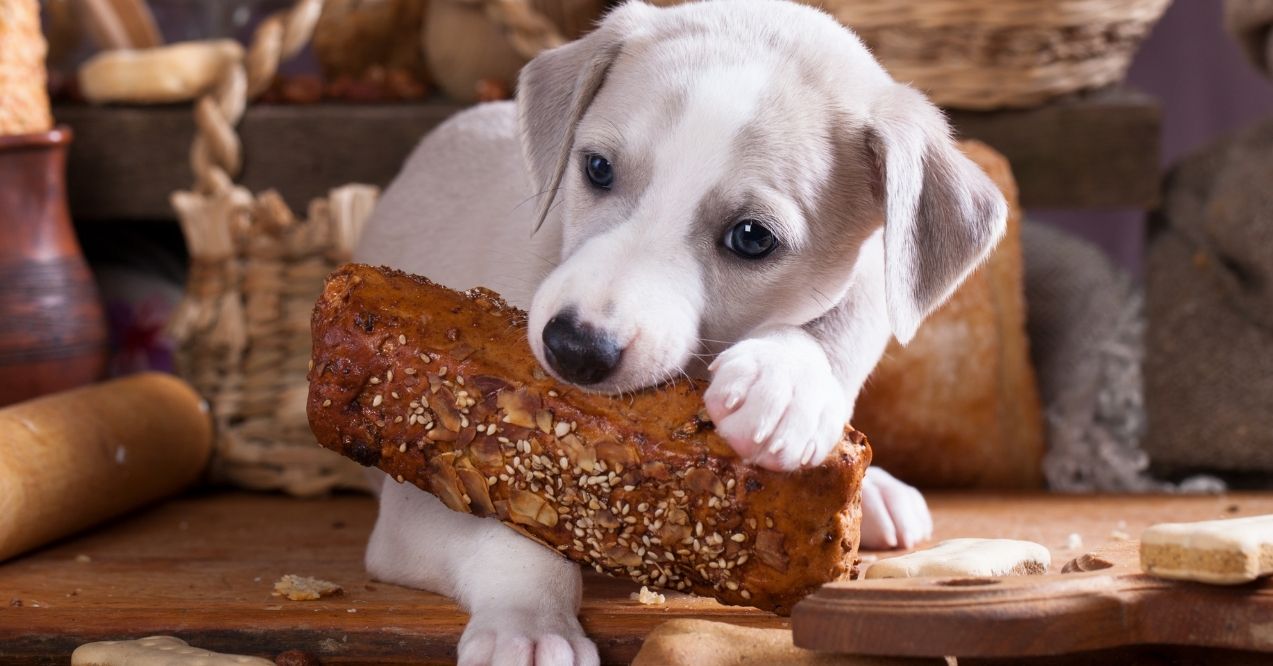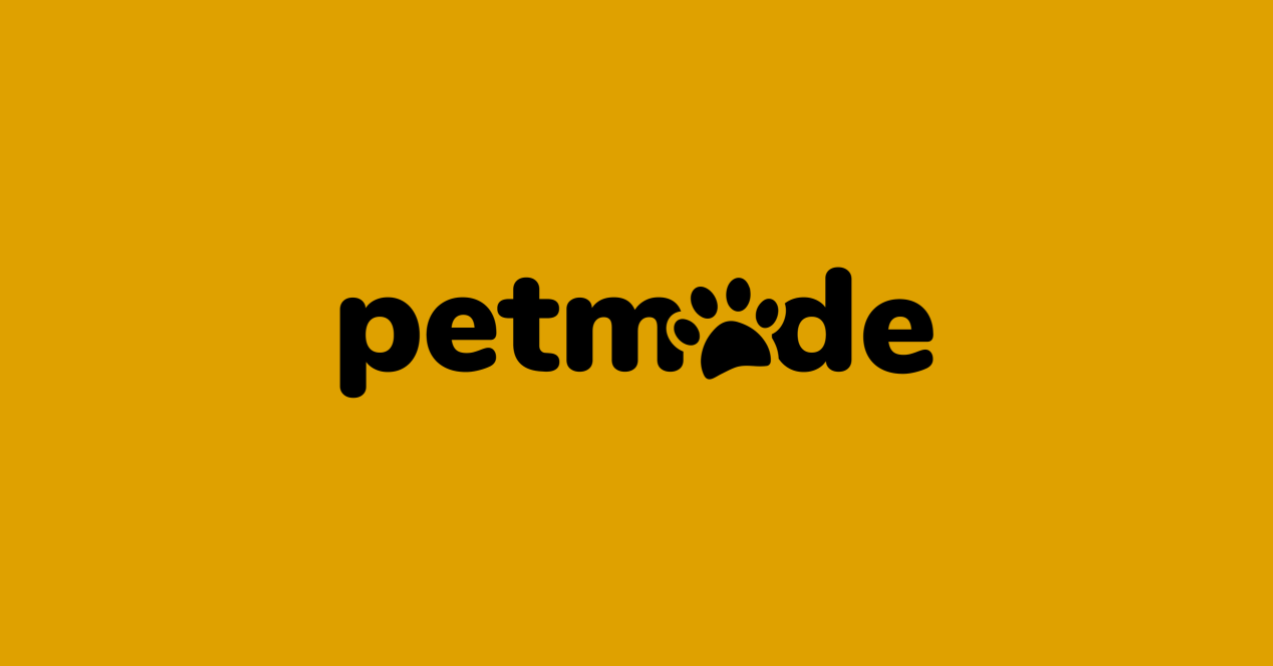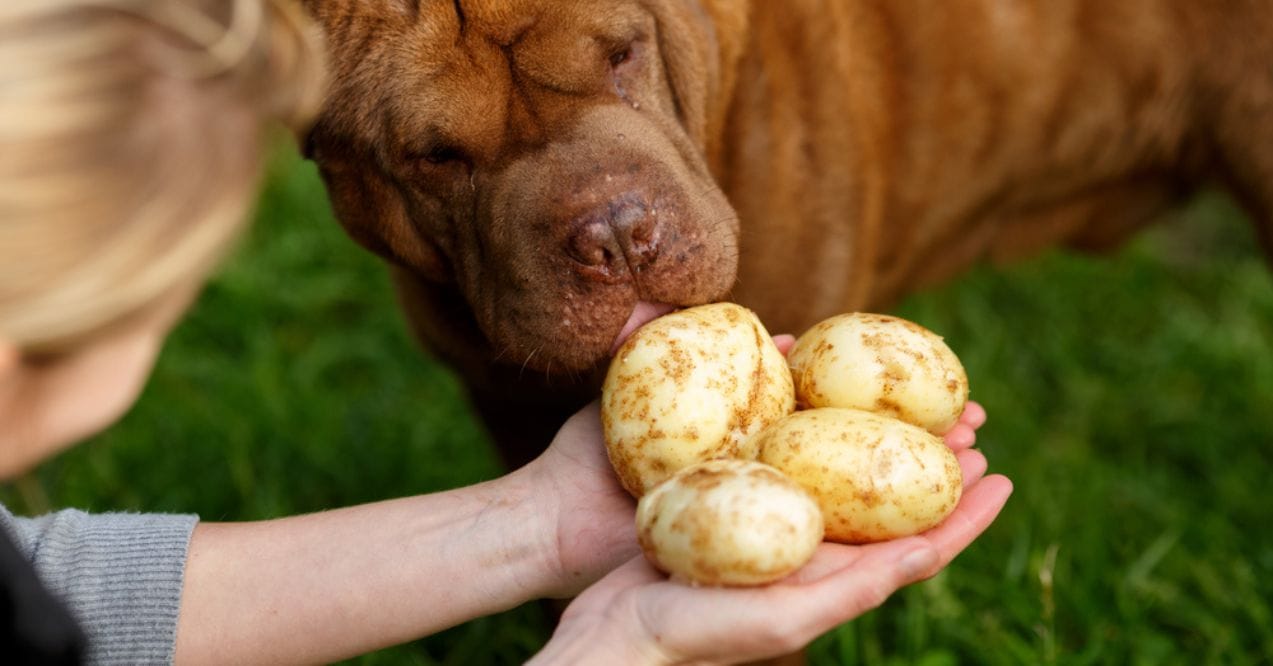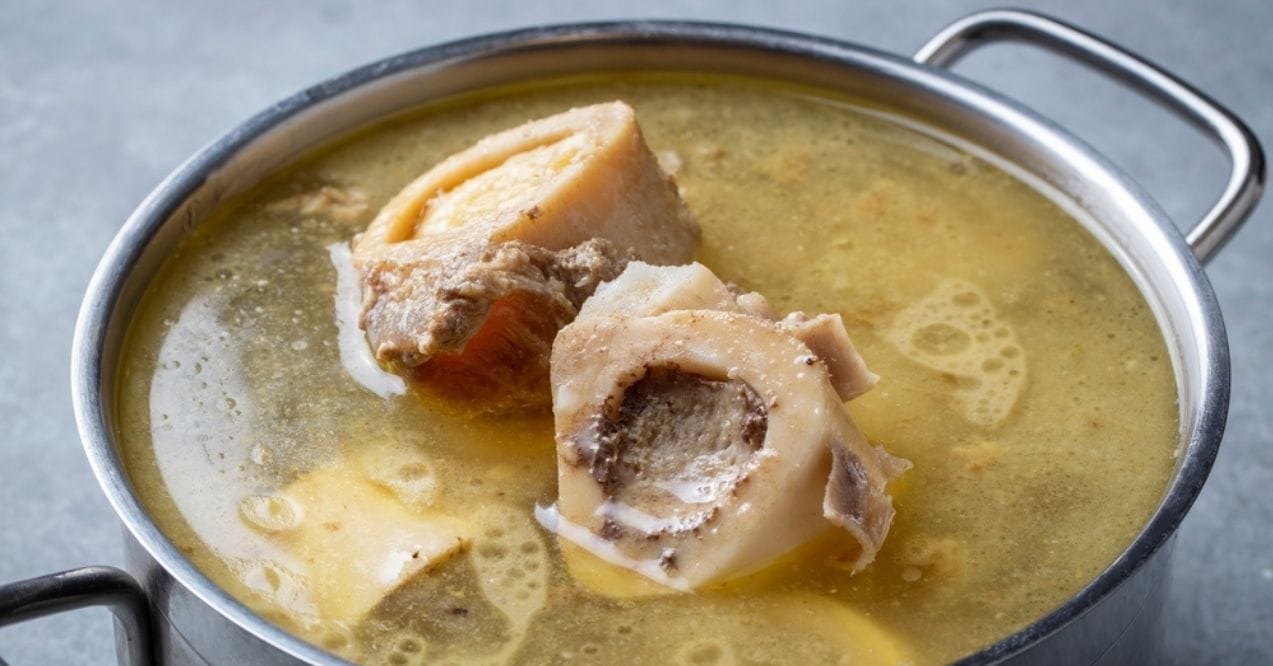What Grains Do Dogs Need for Heart Health?
The grain-free trend has left many dog owners confused about what grains do dogs need for heart health. Whole grains such as brown rice and oats may actually support cardiovascular wellness. Not all grains are healthy for dogs, but the right ones offer real benefits worth knowing.
Why Grains Matter in a Dog’s Diet
Grains offer more than just carbohydrates. They provide dietary fiber, B vitamins, and essential minerals that may support your dog’s energy levels and digestive health. When you choose whole grains rather than refined versions, you’re giving your pup access to nutrients that processed grains have stripped away. These nutrients potentially play a role in cardiovascular wellness, helping maintain steady blood sugar levels and providing sustained energy throughout the day.
Do Dogs Need Grains in Their Food?
Dogs are omnivores, which means their bodies have adapted to digest both animal and plant-based foods over thousands of years of evolution. While grains aren’t strictly required for survival, many dogs thrive when quality whole grains are part of their diet. The key word here is “quality.” Not all grains are created equal.
Some dogs do perfectly fine without grains, while others benefit from the fiber and nutrients they provide. Your dog’s individual needs should guide your decision.
Is Grain Good for Dogs?
The short answer: yes, when we’re talking about whole grains in appropriate amounts. Complex carbohydrates from sources such as brown rice and oats may help regulate energy and support digestive health. The concern isn’t with grains themselves but with low-quality fillers or excessive amounts that replace protein-rich ingredients.
Whole grains contain naturally occurring nutrients that refined grains lack. These include B vitamins, magnesium, and fiber. All of these potentially support heart rhythm and muscle function.
What Grains Do Dogs Need for Heart Health?
When considering grains for dogs and cardiovascular wellness, focus on whole grain options that provide fiber, vitamins, and minerals. Beyond grains, there are many heart-healthy foods for dogs that work together to support cardiovascular function. Here’s a breakdown of the most beneficial grain choices and what makes each one potentially valuable for your pup’s heart health.
1. Brown Rice
Brown rice stands out as one of the most easily digestible whole grain options for dogs. It provides complex carbohydrates for steady energy and contains B vitamins that may support cellular function. The fiber content helps maintain healthy digestion, while the low fat profile makes it gentle on the system.
Most dogs tolerate brown rice well, and it’s often recommended as a first grain to introduce. The magnesium in brown rice potentially supports heart rhythm and muscle function throughout the body.
2. Oats
Oats contain soluble fiber, particularly beta-glucans, which may help support healthy cholesterol balance in dogs. This type of fiber forms a gel-like substance during digestion that potentially affects how the body processes fats. The B vitamins in oats support energy metabolism and cellular health.
Plain, cooked oats without added sugar or flavorings make an excellent addition to your dog’s bowl. The slow-release energy from oats may help active dogs maintain stamina throughout the day.
3. Barley
Barley brings impressive amounts of fiber and essential minerals to the table. The magnesium content potentially supports proper heart rhythm and muscle contraction. B vitamins in barley may contribute to energy production at the cellular level.
This grain also contains selenium, a mineral that acts as an antioxidant in the body. When properly cooked, barley becomes soft and digestible for most dogs.
4. Quinoa
Technically a seed but nutritionally similar to grains, quinoa packs all nine essential amino acids that dogs need. This complete protein profile sets it apart from true grains. The fiber and mineral content, including magnesium and potassium, potentially support cardiovascular function.
Quinoa is naturally gluten-free and highly digestible when cooked thoroughly. Its nutrient density makes it valuable even in small amounts added to meals.
5. Millet
Millet offers a gluten-free option that’s rich in antioxidants and easy on sensitive stomachs. The B vitamins and magnesium content may support heart health and energy production. This grain is particularly gentle for dogs with food sensitivities.
The small, round grains cook quickly and have a mild flavor that most dogs accept readily.
6. Amaranth
Amaranth is a nutrient-dense pseudograin that provides lysine, an essential amino acid often limited in other grains. The fiber, magnesium, and iron content potentially support cardiovascular wellness and oxygen transport throughout the body. When cooked properly, amaranth becomes soft and highly digestible.
This grain works well as a small addition to regular meals rather than a primary carbohydrate source.
Grain Comparison Table
| Grain | Fiber Content | Key Nutrients | Best For |
| Brown Rice | Moderate | B vitamins, magnesium | All dogs, especially those with sensitive stomachs |
| Oats | High (soluble) | Beta-glucans, B vitamins | Active dogs, cholesterol support |
| Barley | High | Selenium, magnesium, B vitamins | Heart health, sustained energy |
| Quinoa | Moderate-High | Complete protein, magnesium | Nutrient boost, protein supplementation |
| Millet | Moderate | Antioxidants, magnesium | Food sensitivities, gluten-free needs |
| Amaranth | High | Lysine, iron, magnesium | Nutrient density, small portions |
Looking for additional heart health support? Explore Petmade’s vet-formulated heart health supplements. They’re rich in Omega-3s, taurine, and other ingredients that naturally support your pup’s cardiovascular wellness.
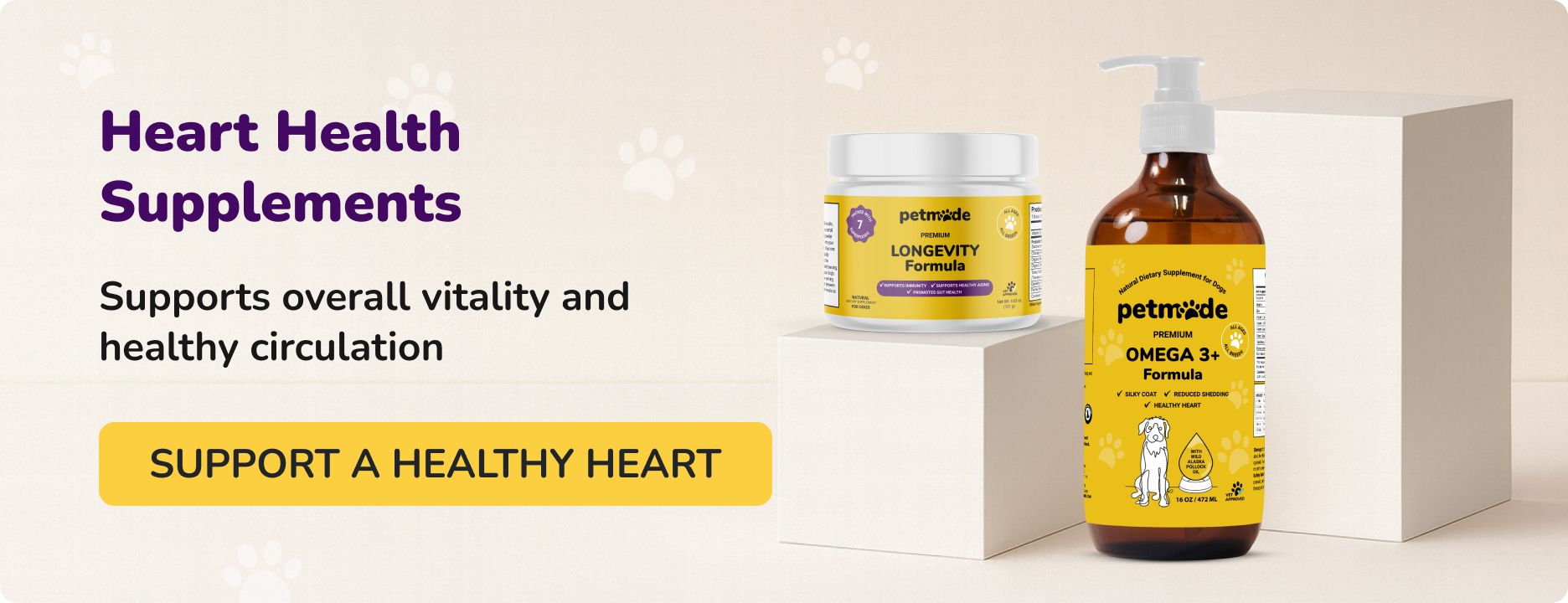
Choosing the Right Grains for Your Dog
Not all dogs have the same nutritional needs when it comes to grains. Size, age, and activity level all play a role in determining which grains work best and in what amounts. Here’s how to tailor your grain choices to your dog’s specific situation.
Small Breeds
Small dogs have faster metabolisms and smaller stomachs, which means portion control matters more. A quarter cup of cooked brown rice or oats may be plenty for a 15-pound dog. The energy from grains gets used quickly in small breeds, so digestibility becomes extra valuable.
Choose finely ground or well-cooked grains that won’t overwhelm their digestive systems. Small dogs often do well with oats or millet mixed into their regular food at meal times.
Large or Active Dogs
Larger breeds and highly active dogs benefit from the sustained energy that whole grains provide. A 70-pound active dog might do well with up to one cup of cooked brown rice or barley per day, divided between meals. The B vitamins and magnesium in whole grains potentially support the heart function needed for sustained physical activity.
Joint support becomes important for large breeds, and the fiber from grains may help maintain a healthy weight. This reduces stress on joints and the cardiovascular system over time.
Senior Dogs
As dogs age, their metabolism slows and heart health becomes increasingly valuable to monitor. Senior dogs may benefit from grains rich in magnesium and B vitamins, which potentially support heart rhythm and muscle function. The fiber in whole grains helps maintain digestive regularity, which often becomes less efficient with age.
Adjust portions downward as activity decreases to prevent weight gain. A senior dog needs fewer calories than their younger self but still benefits from nutrient-dense food choices.
How to Introduce Heart-Healthy Grains Into Your Dog’s Diet
Start with small amounts, about one tablespoon of cooked grain per 20 pounds of body weight. Mix thoroughly with their regular food and watch for any changes in stool quality or energy levels over 3-5 days. If all goes well, you can gradually increase to the recommended portion size over the next week or two.
Always cook grains plain. Use no salt, butter, or oils. Rinse brown rice and barley before cooking to remove any debris. Cook oats in plain water until soft.
Batch cooking works great for busy pet parents. Prepare a week’s worth of rice or barley on Sunday, portion it into containers, and refrigerate. Most cooked grains stay fresh for 5-7 days when properly stored. You can also freeze portions for up to three months.
Monitor your dog’s response to new grains. Healthy stools, steady energy, and good appetite indicate the grain is working well for them.
Common Myths About Grains in Dog Food
The internet is full of conflicting information about grains and dog nutrition. Let’s clear up some of the most persistent misconceptions with straightforward facts.
“Grains Are Just Fillers”
Low-quality grains used in cheap dog food can function as fillers, but that doesn’t mean all grains serve this purpose. Whole grains such as brown rice and oats provide valuable nutrients including B vitamins, fiber, and minerals. The difference lies in the quality and processing of the grain.
Nutrient-rich whole grains support energy production and digestive health. They’re not taking up space. They’re contributing to your dog’s overall nutrition when used appropriately.
“Dogs Can’t Digest Grains”
Dogs have evolved significantly during their time living alongside humans. Their digestive systems produce amylase, an enzyme that breaks down starches and carbohydrates. While wolves have limited amylase production, domestic dogs have developed enhanced abilities to digest plant-based foods.
Most dogs handle properly cooked whole grains without any issues. Digestive problems typically stem from food quality or individual sensitivities rather than an inability to process grains altogether.
“Grain-Free Is Automatically Healthier”
Grain-free doesn’t automatically mean better nutrition. Many grain-free foods replace grains with potatoes, peas, or lentils, and these substitutions have raised their own concerns. Quality matters far more than whether a food includes or excludes grains.
A well-balanced diet with quality protein, healthy fats, and appropriate carbohydrates serves your dog better than any trendy label. Marketing often outpaces nutritional science in the pet food industry.
What to Know About Grain-Free Diets
Grain-free dog foods exploded in popularity over the past decade, often marketed as more natural or ancestral diets for dogs. The trend coincided with human dietary movements toward reduced carbohydrates and gluten-free eating. Pet food manufacturers responded by creating grain-free formulas that replaced traditional grains with alternative ingredients such as peas, lentils, chickpeas, and potatoes.
These alternatives provided the carbohydrates and structure needed in kibble production. However, the shift to grain-free diets brought unexpected concerns that caught the attention of veterinarians and researchers.
Does Grain-Free Dog Food Cause Heart Problems?
Starting in 2018, reports began linking certain grain-free diets to a heart condition called dilated cardiomyopathy (DCM) in dogs. The FDA investigated cases where dogs not typically prone to DCM developed the condition. The common factor: many affected dogs ate grain-free diets high in peas, lentils, or potatoes.
Research hasn’t definitively proven that grain-free diets cause heart problems. The connection appears more complex and may involve how certain ingredients affect nutrient absorption. Some dogs on grain-free diets showed improvement when switched to grain-inclusive foods, while others who supplemented with taurine also improved.
The takeaway: grain-free isn’t inherently dangerous, but the ingredients used to replace grains warrant attention. If your dog shows signs of heart problems, consult your veterinarian about dietary factors.
Are Lentils Bad for Dogs’ Heart?
Lentils themselves aren’t toxic or inherently harmful to dogs. The concern arises when lentils, peas, and other legumes appear in high concentrations as primary ingredients in grain-free formulas. These ingredients may interfere with how dogs absorb or synthesize taurine, an amino acid vital for heart function.
The issue isn’t necessarily the lentils. It’s the nutritional balance of the overall diet. When legumes replace both grains and quality animal proteins, nutritional gaps can develop over time. Occasional lentils as a small ingredient in a varied diet differ vastly from lentils as a main component of daily nutrition.
Conclusion
The question of what grains do dogs need for heart health depends on individual needs. Brown rice, oats, and barley may support cardiovascular wellness when part of a balanced diet. Quality matters more than grain presence or absence. Consult your veterinarian for personalized guidance.
Brown rice, oats, barley, and quinoa provide fiber, B vitamins, and minerals that may support cardiovascular function in dogs.
Grain-free food isn’t inherently unsafe, but some formulas high in legumes have raised concerns about heart health. Quality matters more than grain presence.
Watch your dog’s energy levels, stool quality, and overall health. Your veterinarian can help assess if grain inclusion would benefit your specific dog.
Whole grains provide fiber that supports healthy digestion and regular bowel movements. Most dogs digest properly cooked grains efficiently.
Cook grains plain in water without salt, butter, or oils. Rinse before cooking and ensure they’re fully softened before mixing into your dog’s food.
Advertisement. This site offers health, wellness, fitness and nutritional information and is designed for educational purposes only. You should not rely on this information as a substitute for, nor does it replace, professional medical advice, diagnosis, or treatment. If you have any concerns or questions about your health, you should always consult with a physician or other health-care professional. Do not disregard, avoid or delay obtaining medical or health related advice from your health-care professional because of something you may have read on this site. The use of any information provided on this site is solely at your own risk.
